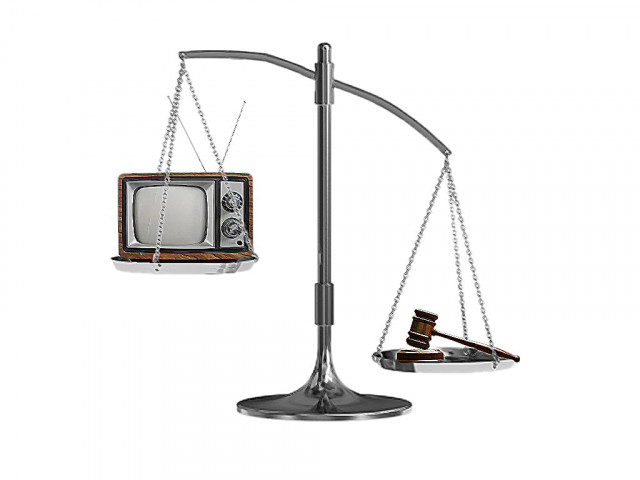Media quandary: Can judges be criticised?
Have the courts overstepped in dealing with criticism of the judiciary in the media?

“Accountability, transparency and being subject to criticism are as incumbent upon the judiciary, as it is on the other branches of the state,” says Ali Dayan Hassan, the Director for Human Rights Watch in Pakistan, while talking to The Express Tribune.
Hassan further stated that HRW had been receiving reports of the curbs placed on local media by the judiciary for a long time. However, it was the recent wave of orders by the Lahore and Islamabad High Court seeking to restrict the media’s freedom of expression, which brought the issue into the limelight [See background below].
“While HRW advocates for an independent judiciary globally, we want to emphasise that individual judges and the institution itself cannot place itself above criticism,” said Hassan.
“Just like the other branches of the state, if the judiciary transcends into other domains, there will be criticism as it is the primary tool for a democratic society to keep its different branches in check.”
A history of media clampdowns
Allama Siddiq Azhar, prominent columnist and member of South Asia Free Media Association (SAFMA) feels that the restraints placed by the judges were in line with the historical treatment of media in Pakistan.
“We have a history where freedom of expression has never been appreciated, neither by democratic governments nor by military regimes,” said Azhar.
However, Azhar felt that when a judge gives a decision in court, it becomes public property and it is within the constitutional rights of the public and the media to criticise it. He also added that unless there is an element of disrespect for the institution or an attempt to malign a judge, any attempt to curb the media is an infringement on the rights to freedom of expression.
Need for middle ground
Zahid Ebrahim, a Supreme Court advocate and senior lawyer feels that while courts in Pakistan have withstood exceptional scrutiny and criticism over the years, the judiciary needs to find a middle ground when it comes to the issue of contempt.
“Issuing such a general order is equivalent to imposing censorship and that has a chilling effect on the media. Instead, every specific instance needs to be dealt with in isolation, and in its particular context,” he argued.
Ebrahim also added that there are certain instances where contempt orders are justified, such as when court orders are not being obeyed and when there is an attempt to scandalise a judge.
Extreme measure to counter ‘hysterical, partisan’ media?
Javed Jabbar, former Information Minister and academic also disapproved of a blanket ban by any institution, but added that, “You can’t attribute the blame entirely to one party. Instead improvements are needed on both ends.”
Jabbar stated that it was the lack of self-regulation and the rise of a hysterical, partisan media that prompted such extreme measures by the judges. He also criticised the judges and mentioned that in the last three years, judges made day-to-day observations on cases while their hearings were still under way.
Restraint in frequency and nature of judgments also needed to be exercised by judges, he said.
Background
According to HRW, Judge Shaukat Aziz of the Islamabad High Court issued a restraining order to PEMRA to stop airing criticism of the judiciary on television on October 9. The order was justified by stating that the media ban was meant “to ensure that no programme containing uncommendable, malicious, and wicked material is telecast by any of the channels in which person of the honourable chief justice of Pakistan and other honourable judges of the superior court are criticised, ridiculed, and defamed.”
The group further stated that on November 20, the court maintained the restraining order preventing the airing of critical programming and also demanded a progress report from PEMRA on a television show aired on a private channel which criticised the conduct of Supreme Court Chief Justice Iftikhar Chaudhry. A contempt notice was also issued to the channel’s chief executive officer later on.
Similarly, on October 16, Judge Nasir Saeed Sheikh of the Lahore High Court issued a stay order against the airing of “anti-judiciary” programming on television. The stay order was further extended against airing of television programming “intended to scandalise” the judiciary on November 7 and PEMRA was directed to ensure that the order was implemented.
The statement also mentions that journalists have told HRW about major television stations and newspapers being informally advised by judicial authorities that they would be summoned to face contempt of court charges for criticising or commenting unfavorably on judicial decisions or specific judges.
Furthermore, editors and former editors of several publications faced contempt proceedings in 2010 for publishing a story alleging misuse of office by the Sindh High Court chief justice, which was averted after their papers, apologised publicly to the court.



















COMMENTS
Comments are moderated and generally will be posted if they are on-topic and not abusive.
For more information, please see our Comments FAQ